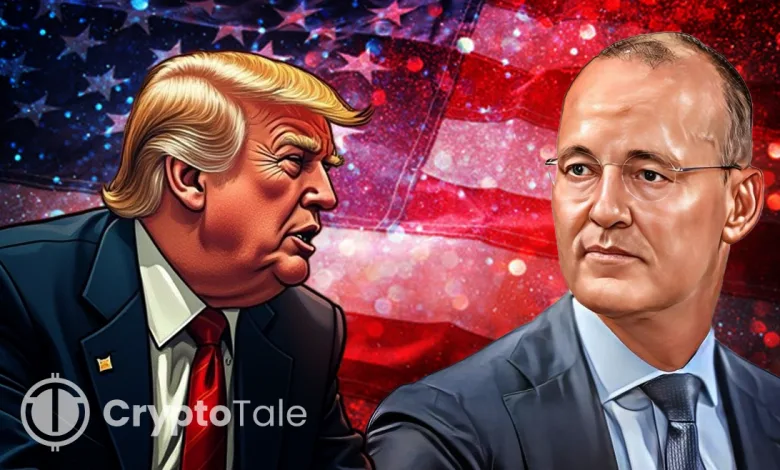Klaas Knot Slams Trump Crypto Ties as Conflict of Interest

- Klaas Knot stated that Europe does not permit public officials to profit from crypto assets.
- Public confidence relies on fair, consistent crypto rules for all actors and assets.
- The COIN Act aims to prohibit U.S. leaders from owning or promoting crypto while in office.
President Trump’s expanding role in cryptocurrency has drawn sharp criticism from Klaas Knot, the head of the Dutch Central Bank and the Financial Stability Board. Knot accused Trump of creating a conflict of interest by promoting crypto while potentially influencing regulation. “A government should regulate, and public officials shouldn’t actively dispose of financial instruments they regulate,” he said via a post on X. Europe, he added, does not accept such behavior from its public officials.
Knot’s comments followed Trump’s public pivot toward cryptocurrency, reversing his earlier skepticism. He now supports U.S. crypto development and regularly appears at major blockchain events. He has signed executive orders to establish a national cryptocurrency reserve and advocated for agency deregulation. This pivot coincides with his family’s direct involvement in digital asset ventures, creating new ethical concerns.
U.S. lawmakers, citing Trump’s growing influence over digital asset regulation, are questioning whether personal gain is interfering with national crypto policy. The issue has triggered calls for legislative reforms.
Family Crypto Links Raise Tension in Washington
The Trump family’s involvement in World Liberty Financial (WLF) continues to raise concerns about conflicts of interest from financial and legal experts. WLF is behind the “USD1” stablecoin, used in major investment deals.
Senators Jeff Merkley and Elizabeth Warren called the venture a “staggering conflict of interest.” They raised questions about national security and legal violations. Meanwhile, Trump hosted a private dinner for top $TRUMP memecoin holders, who collectively spent over $148 million to secure their spots.
Political analysts and watchdogs argue that these actions reflect an overlap between political power and financial interests. A Harvard professor described the memecoin dinner as “open corruption.” Critics argue this behavior creates barriers to passing sound digital asset legislation in Congress.
Europe’s Ethics Rules Offer Stark Contrast
In Europe, financial regulation strictly separates public duty from private interest. Klaas Knot explained that officials are prohibited from profiting from financial instruments they regulate. This policy forms part of Europe’s broader crypto framework.
The Markets in Crypto-Assets Regulation (MiCA) is the European Union’s comprehensive regulatory framework for crypto assets. MiCA enforces transparency, licensing, and reserve standards. It also ensures that the regulatory authority is not mixed with private profit.
Knot pointed out that public confidence depends on clear and consistent conduct from public officials. European regulators follow the principle of “same activity, same risk, same regulation.” This rule applies to all crypto assets and actors.
The European approach demonstrates how digital asset adoption can be aligned with governance integrity. Leaders insist that preserving trust is essential for stable financial innovation.
Related: Trump’s “One Big Beautiful Bill” Sparks Clash Over Crypto, Rates, and Subsidies
Can U.S. Lawmakers Match Europe’s Guardrails?
Lawmakers now push a new ethics law called the COIN Act. Introduced by Sen. Adam Schiff, the bill would ban presidents, cabinet members, and their families from sponsoring, issuing, or endorsing cryptocurrencies.
The proposed legislation would be in effect during the time they serve in office and for two years after they leave office. The move comes against the backdrop of the increased concern over Trump crypto transactions and deregulatory pro-orders. Will this act help regain the credibility of regulation in the U.S.?




